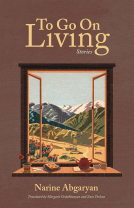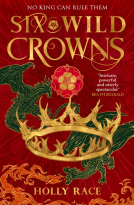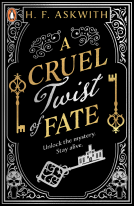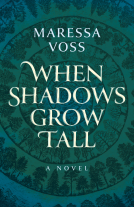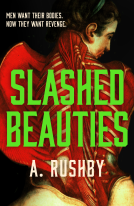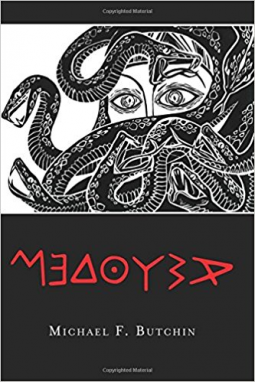
Medousa
by Michael F Butchin
This title was previously available on NetGalley and is now archived.
Send NetGalley books directly to your Kindle or Kindle app
1
To read on a Kindle or Kindle app, please add kindle@netgalley.com as an approved email address to receive files in your Amazon account. Click here for step-by-step instructions.
2
Also find your Kindle email address within your Amazon account, and enter it here.
Pub Date 16 Jan 2016 | Archive Date 4 Apr 2018
Talking about this book? Use #Medousa #NetGalley. More hashtag tips!
Description
Classic Greek mythology paints Medousa as one of the most loathsome creatures of the ancient world. Feared by man and shunned by the Gods themselves, with a visage so hideous, any living creature that looked upon her would be instantly turned to stone. But what made Medousa such a monster?
Author Michael F. Butchin retells the classic story from Medousa’s point of view, from a brutal childhood of slavery in Sparta, to her death at the hands of the hero Perseus on a remote island at the end of the world. We come to know the woman Medousa was—her hopes and dreams, her loves and friendships—rather than the monster we think we know.
When Medousa's family is murdered by the Spartan Krypteia, she is taken and sold as a slave to the royal house of the Eurypontids. There, over the years, she gains the affections of her mistress, eventually obtaining her freedom. She devotes herself to Athena, the Goddess of wisdom, courage, and the strategy of war, and trains to be a priestess, hoping for a future of love and acceptance, only to suffer rape, betrayal of faith, and the curse that turns her into a Gorgon.
Torn from the woman she loves, Medousa flees to a life of solitude, driven mad by her loneliness and pain, and taking out her anger on travelers who cross her path.
In the end it is the Titans, not the Gods, who give her the care, companionship, and love she so longs for, but will she ever find the healing and redress of injustice she so deeply desires?
Advance Praise
5.0 out of 5 stars An exploration of Greek Myth with a modern eye.
By Robert on January 28, 2016
Format: Paperback|Verified Purchase
Mythology looks very different to the modern eye, even in the fantasy genre where magic, gods, and heroes are accepted parts of fictional worlds.
In classical myth, Medousa is the story of a monster, a priestess raped by one god, punished with the loss of her humanity by another, and finally slain by the half-divine son of a third.
Michael Butchin turns the myth on its head by looking at the story from the point of view of a young girl taken as a slave, grown into a young woman punished for refusing to suicide after her rape. This becomes a powerful story of love, grief, and redemption in the face of tragedy.
Other mythic and historical figures make appearances, again as viewed through modern eyes, offering opportunities for comedy, tragedy, and philosophy, which resonates well within the cultural context Butchin is exploring.
Medousa is appropriate for young adult audiences, but does contain (unavoidably) both sexual themes and violence. The book also explores gender roles and GLBTQ themes, again within the context of Greek myth and culture.
Highly recommended.
Claire Holland rated it it was amazing · review of another edition
Trust me... this is the best novel I have read on Medusa. I thoroughly enjoyed the poor girls story of slave to demigod. I laughed, I cried, and have a whole new perspective on Medusa, This book I rate five stars for all round it fitted, it was fresh and New and if you're a fan of Greek history this tome packs a punch to satisfy your desires.
Format: Kindle Edition Verified Purchase
I enjoyed falling into a world of myth and legend with the heart of a young girl at stake, I cried, I laughed, got extremely angry and died a little alongside this heroine. An addictive read so beware!! Definitely deserves the five star rating
5.0 out of 5 stars Great Revisioning of a Classical Monster
By E.P. Clark on March 23, 2016
Format: Paperback
4 1/2 stars, rounded up to 5.
I was immediately intrigued when I came across this book. I have to admit I'm a sucker for those stories where we get to hear the side of the "bad guys," and it certainly seems like classical Greek mythology is in desperate need of a retelling from the point of view of the other side, especially when that other side is female. So I absolutely loved the concept right off the bat.
The book is very detailed and well-researched, and for those of us with an amateur love of Greek mythology, it's a lot of fun to encounter Ajax, Heracles, Helen, and so on and so forth from a different perspective (Ajax is a bashful suitor, Heracles is a drunken screw-up who takes credit for others' deeds, and Helen is one of Medousa's friends and protectors). The author freely admits in the afterword that all these characters are thrown together with no particular attention paid to their "actual" chronology, if such a thing can be said about mythological figures, but the effect is (for me at least) a series of delightful cameos by famous heroes. Medousa herself is a very sympathetic character, and her rehabilitation is welcome and overdue...overall "Medousa" is an excellent revision of a number of classical Greek myths and well worth the read for those that enjoy myth-based fantasy. Furthermore, the fact that most of the main characters are female warriors of one sort or another as another very refreshing aspect of the book: instead of having a token warrior princess, practically the entire cast is made up of Spartan battle-trained women, Amazons, goddesses, Gorgons, etc. etc...we're not used to having that many women in our books, and it was yet another good reason to enjoy "Medousa."
I received a copy of this book in exchange for an honest review.
Available Editions
| ISBN | 9781519383174 |
| PRICE | US$2.99 (USD) |
Links
Featured Reviews
 amy B, Reviewer
amy B, Reviewer
Overall, this felt like a refreshing take on the legend of Medousa, and examining through fiction how some of the myths about her may have come about. There is experience of madness through essentially the solitary confinement of not being able to interact with other beings. She also learns over time to control both her anger and urge to lash out - both as a human and later as a Gorgon, when she learns to leash her fatal power.
Large amounts of pain and suffering form Medousa’s tale, with times of joy and repose. Sensual without being graphic, there are lovely bits depicting the love, romance and sexual relationship between Medousa and Cynisca as young mortal women. Love, longing, and the sadness of missing an absent lover are major threads woven throughout.
Slavery, and the desire for being able to decide her life for herself are major issues for Medousa early in the novel. Once her freedom is won, she is still constrained through societal expectations, including those who knew her while she was still a slave, and her own ingrained attitudes from living as a slave.
The casual sexual assault and harassment was something I could read through, but the author’s portrayal of Athena’s response to the rape of Medousa in her temple I found really difficult to deal with, due to how I have experienced and heard others recount people reacting to sexual assault and rape in real life. While it reflects Ovid’s telling, (which I had forgotten about in the intervening years), the sheer victim blaming of her words is brutal.
While horrific and hard to deal with, it does remind the reader that the Greek Pantheon of Goddesses and Gods were not only the positive aspects commonly associated and interpetted in beginner neo-Pagan and New Age books, but also the sheer brutality contained within mythology and poetry that tends to get edited out in reinterpretations or versions parsed for high school audiences. (Granted, there is a whole other discussion about male authorship and misogyny in classical Greek texts).
For anyone dealing with issues around experienced sexual harassment, assault, or rape, the victim blaming of other characters (and at times, from Medousa towards herself) may be difficult to read, especially pronouncements from characters on her guilt of simply existing provoking or being responsible for the attack.
 Nikki N, Educator
Nikki N, Educator
This was a very interesting take on Medousa, definitely not one I have seen before. This is the story of Medousa written from her perspective. It was fresh and very well written. "Medousa" has all the elements that I am looking for in a book! It was an emotional rollercoaster!
The hardest thing to read was the constant sexual assault and feeling of helplessness I felt for Medousa! The parallel of the victim shaming to society these days was blaring! She is constantly wronged and hurt and the blame is constaly thrust onto her. Though she finds joy and happiness it in a few relationships it is constantly stolen. It was hard to watch the way Medousa was treated and you dearly wanted her to have her revenge.
There was such a beauty to the love scenes, as well. Nothing too graphic! It was so enjoyable to read because you could feel the love in it and not carnal lust. I loved watching her strength rise and then her ability to control that very strength and direct it and harness it as opposed to being owned by it. She shows this strength as a human and also as the monster.
The constant sexual assault was not easy to read, but it was so necessary for the story and for the lesson of it for today! Women are constantly looked at as objects of men's "affection" and always blamed when the situation goes awry. I appreciate any story that explains the emotions of the ACTUAL victim and hope that more people would understand the hurt and confusion that comes with being assaulted. Nobody should feel any kind of punishment when they are sexually assaulted!
This was such a great story, heartbreaking but also very empowering.
 Reviewer 431600
Reviewer 431600
Wonderful retelling of a villain whose life and story was so misunderstood. A villain known by everyone, Medousa was once a girl who wanted to love and be loved. Yet she was faced with so much misfortune. But through the tragedy, she continued to fight through and to find herself. This book was so intriguing and told a different side of the story, the side of the villain.
Would recommend to those who love greek mythology
 Alina G, Reviewer
Alina G, Reviewer
Quite interesting interpretation of Medusa (Μέδουσα), the famous Gorgon in Greek mythology: the story follows her as a young girl whose family is killed in a raid and she is taken as a slave by the Spartans. It depicts her fears and hopes, shows her friends and enemies, and the ordeals she is subjected to, making her become the monster (?) that is known in mythology.
I like how the author rendered the Gods and heroes of Antic Greece, far from the way I used to see them as a child.
Sensitive topics: rape (and I liked that it was accentuated through the text that blaming the girls for being raped is totally not fair); lesbianism
 Katie B, Reviewer
Katie B, Reviewer
https://www.goodreads.com/review/show/2365568914?type=review#rating_163852886
This book was a fucking journey. And it completely 180'd my perception of the Gods, Olympians and the legends within Greek mythology.
The story details the life of Medousa, from child stolen to serve as a slave, to young woman battling for self respect and a place within society - all under the watchful eye of the goddess Athena.
It details her dramatic transformation into a Gorgon and the decades that follow - that part of her stream of consciousness was tough to read as you could feel the despair she felt.
It was a wonderful book overall and I'm excited to read others in this vein and more by this author.
*Arc received by NetGalley in exchange for an honest review*
14 likes
 Anne M, Reviewer
Anne M, Reviewer
This is a retelling of a tale that anyone with any interest in Greek Mythology should read; it really changed my perception of what I had learned years ago.
Medousa was considered less than a human from the time her family was killed and she was mad a slave, only two humans ever treated her with any kindness in the palace and they were unable to protect her. She would have been much better off if Athena had never noticed her. If the Greek goddesses and gods were so powerful, why did she not look into the future of the human who supposedly meant so much to her? After all, a prophet saw this possible future for her and if Athena cared so much she could have kept her away from the sea, she could have made the priestess at the local temple accept Medousa as an acolyte. To punish her as she did for something that she had no control over and then to punish her again once she was dead was too much!
5/5 STARS:
 Sarah W, Reviewer
Sarah W, Reviewer
I love retellings so I was intrigued when I heard about "Medousa" and this retelling definitely didn't disappoint.
I liked how Butchin put a new spin on well-known myths, including not only the story of Medousa but also touching on the fall of Troy, Heracles, and the war between Titans and Olympians.
The main weakness of this novel, in my opinion, is that it felt somewhat repetitive at points with characters making the same point over and over again, but the overall story is still fascinating and kept my interest throughout.
I liked Medousa as a protagonist and her suffering and doubts were realistically portrayed and her trauma was never made light of during the novel. The ending was somewhat abrupt but that just added to the story's tragedy.
This novel certainly managed to portray the Olympians in a different light and they were probably the most unlikable characters in the novel, which makes sense in terms of the story, but didn't really make their actions more palatable.
Overall, this is a fantastic retelling that puts a spin on a well-known tale.
I admit, I'm a sucker for a myth or fairy tale retelling done well, and this was a great read. Many people know the story of Medusa, but as it's said the victors write history, and this is a peek into the other side of the story. Medusa was once a girl with hopes and dreams and struggles all her own before being turned into a gorgon, and this is the engaging story of her life. Highly recommend for anyone who loves mythology and alternate tellings.
